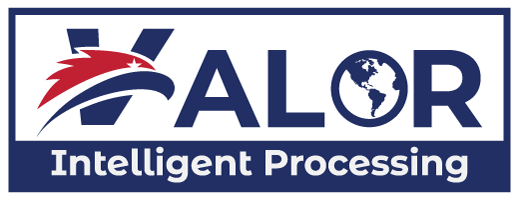Handing over unpaid accounts to a third-party collection agency might feel like you’re giving up control, but it doesn’t have to be that way. Handing things off can actually lead to smoother resolutions when done correctly. Third-party collections are often used when internal efforts reach a dead end, and accounts begin to age without payment. At this point, businesses turn to specialized agencies that focus on recovery.
When properly coordinated, third-party agencies serve as an extension of your operation while maintaining their own structure and tools. They’re equipped with professionals trained to handle difficult conversations and use technology that streamlines the recovery process. Their goal isn’t just to chase down balances but to help clear accounts while maintaining goodwill, especially in industries that count on repeat customers. Let’s explore what happens once those files are passed along and how effective agencies work behind the curtain.
What Is third-party collection and how it is Different?
Third-party collections kick in when a creditor, like a business or service provider, leans on an outside partner to collect accounts that haven’t responded to routine follow-ups. These are usually older accounts that have fallen off the expected payment timeline. At this stage, outsourcing to a third-party agency creates a fresh start in how the account is managed.
Here’s how it differs from first-party collections:
– No direct branding: Third-party agencies contact consumers on their own behalf, not under your business name. This helps keep things professional and provides separation.
– Compliance-driven: These agencies must follow laws like the Fair Debt Collection Practices Act (FDCPA), which sets clear boundaries around contact methods, frequency, and language.
– Independent handling: From verifying information to negotiating payment plans, third-party agencies manage the full communication process.
What sets third-party services apart is their focus on neutrality, strategy, and structure. They step in with experience, tools, and a team that often isn’t available in-house. Throughout the process, their goal is to preserve your company’s reputation and help close accounts without unnecessary friction.
the Step-by-step process of third-party collections
Once an account moves out of your internal system and into a third-party agency’s hands, a specific sequence begins. This process is not random or rushed. It’s built to be methodical and follows industry rules that keep everything on the right track.
Here’s how it plays out:
1. account submission
Details are shared with the agency, including balance due, consumer contact info, and previous efforts. The better the quality of this data, the stronger the start.
2. first outreach effort
After reviewing the account, the agency reaches out through phone, email, or mail. These first contact points are scripted to stay compliant and respectful.
3. Debt Validation
If the consumer asks for verification, everything pauses until proper documentation is sent and received. This is a legal part of the process and shows transparency.
4. productive dialogue
If the agency connects with the customer, the goal shifts to listening and problem-solving. Training helps agents avoid pressure tactics and instead focus on plans that work.
5. working toward a resolution
Based on the conversation, the agency might propose a one-time payment or build a flexible payment schedule. The success of the plan usually lies in how well it respects the payer’s current situation.
6. continuous tracking
From that point, the agency documents each interaction and checks in as needed. It also monitors whether payments are made on time and adjusts as required.
In Dallas, relationships matter, especially across small and mid-sized communities. People talk, and reputations follow. That’s why even third-party agencies are expected to treat each person with empathy. Good resolutions tend to come from open, realistic conversations rather than pressure to pay now.
smart tech tools that support us-based collections
Technology plays a big role in how third-party collections stay efficient and accountable. US-based call centers use familiar systems and tools designed to boost productivity without losing that human factor. This is good news for businesses that want results without sacrificing consumer trust.
Here are a few tools often in place at experienced agencies:
– predictive dialers
These dial phone numbers based on availability, making sure live calls go to a ready agent. They cut down time spent on unanswered calls.
– customer relationship management (cRM) software
CRM programs log each contact, note, and update. They help agencies stay organized and ready to respond if a customer calls back or has questions.
– speech analytics
Some systems review recorded calls for keywords, tone, and timing. This helps agencies improve conversations and stay within legal and quality guidelines.
– self-service payment portals
These websites let customers log in, choose payment dates, or check balances without picking up the phone. It saves time and gives more control to the user.
These innovations don’t replace real conversations — they enhance them. With technology doing the heavy lifting on data and systems, agents stay focused on the human part of the work. US-based support also helps ensure compliance with federal and local laws, which can vary from state to state.
staying aligned with laws and ethics in collection
Every collector has to follow strict guidelines set by state and federal law. These aren’t just rules for the sake of structure — they protect consumers and keep businesses out of legal trouble. Reputable third-party agencies know and follow these laws at every step.
The Fair Debt Collection Practices Act is one core law collectors must follow. It prevents midnight calls, unfair pressure, false statements, and repeated contact after a debt is disputed. Agencies must identify themselves truthfully, state their purpose, and share accurate balance information. If verification is requested, that request must be honored before more contact is made.
Ethical behavior also requires strong documentation. Every call, letter, or email should be logged. If the consumer states they need more time or share new details, that information should guide the next steps.
In Dallas, where business networks often overlap and customers have long-standing ties with companies, respectful collection practices aren’t just about compliance. They reflect your brand. When consumers feel listened to, they’re more likely to engage, pay, and stay loyal down the road. Fair treatment is not just best practice, it’s the right thing to do.
the long-term impact of smart collection practices
Third-party collection isn’t just about getting money back. It gives businesses a chance to learn, revisit their systems, and build goodwill if handled correctly. Every collection story offers data, trends, and feedback that can shape a better customer experience moving forward.
Here’s how businesses can make collections a growth tool instead of just cleanup work:
– Choose experienced agencies that understand your region and customer culture.
– Structure payment plans that match your customers’ income cycles.
– Study collection outcomes to update service practices or policies.
– Use collection metrics as part of regular financial reviews.
– Open a dialogue with consumers before issues grow into past-due accounts.
One Dallas-based company that provides seasonal repair services struggled with overdue invoices during its slower months. After teaming up with a US-based collection partner that offered clear communication and consistent follow-up, they started seeing faster resolutions. Customers who once delayed payments instead appreciated the respectful tone and flexible options and were more likely to do business again later.
When you look beyond just the dollar amount and focus on the relationships and systems behind debt collection, it becomes a tool for stability. Running smarter collections isn’t about chasing money — it’s about building stronger businesses. In communities like Dallas, trust and professionalism go hand in hand. And that’s what turns recovery efforts into long-term results.
If you’re ready to experience the benefits of professional debt recovery, explore how our comprehensive third-party debt collection services can enhance your business operations. With Valor Intelligent Processing, you’ll gain insights and strategies tailored specifically to your needs, ensuring efficient and ethical recovery while preserving customer relationships.


